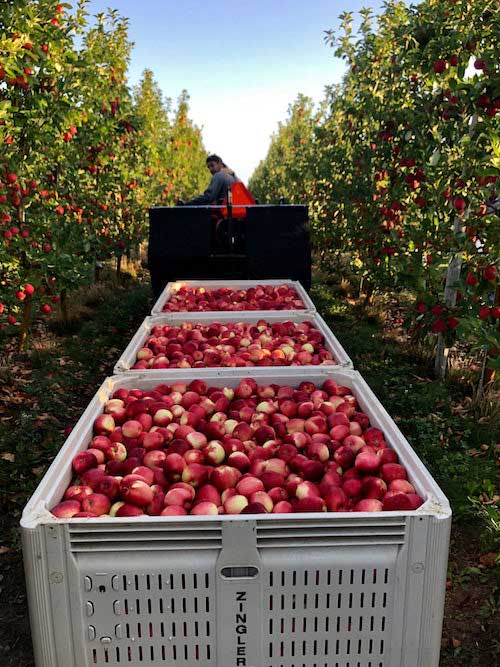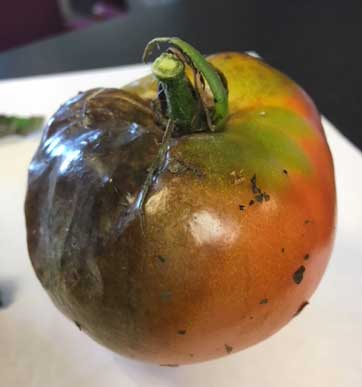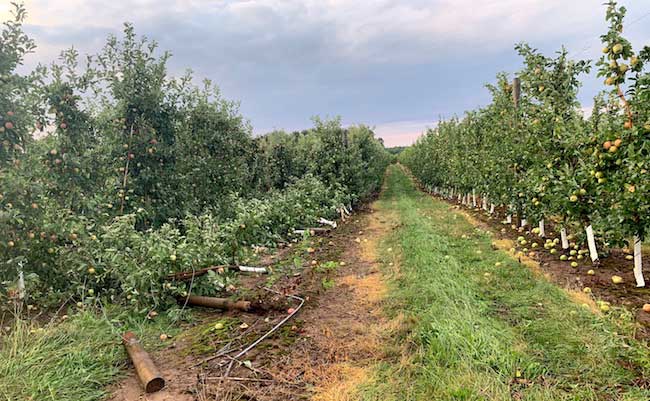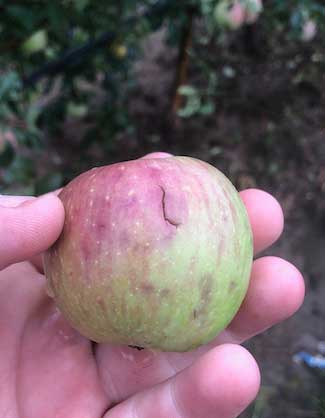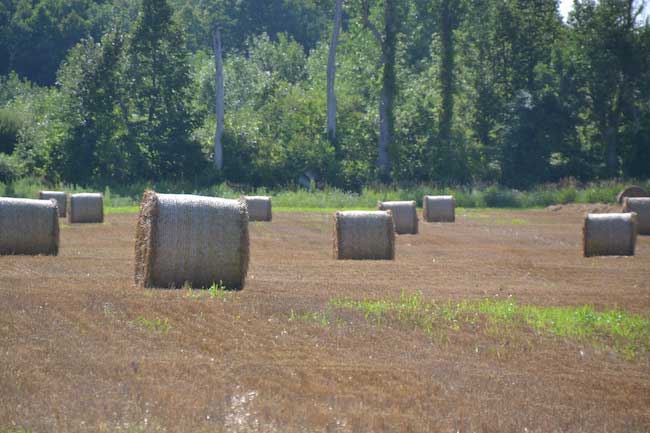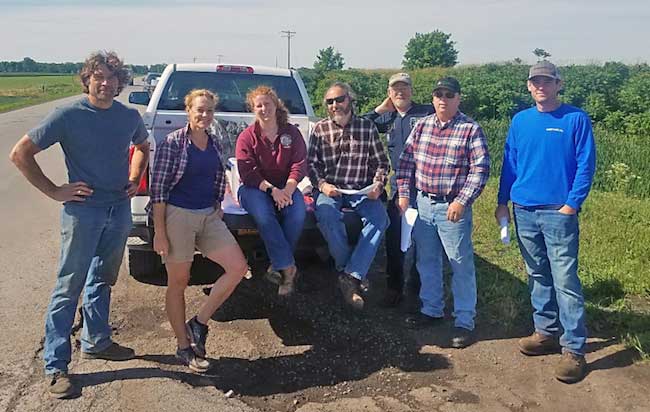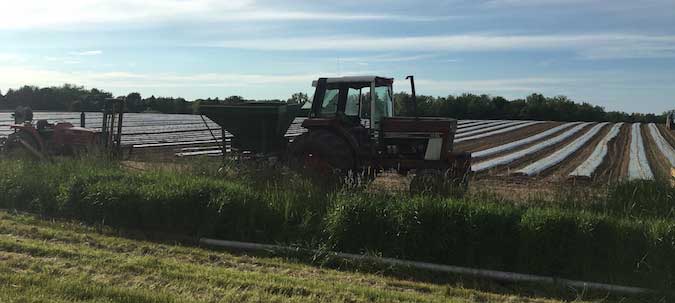Extension warns of invasive insect at risk of spreading to NY
Press Release, Cornell Cooperative Extension in Orleans County

Photo courtesy of NYSIPM staff: A Spotted Lanternfly adult is about an 1 long.
There is an invasive insect wreaking havoc in southeastern Pennsylvania, and the risk of it spreading to New York is high.
Spotted Lanternfly is native to Southeast Asia and was first detected in Pennsylvania in 2014. It is a sap-sucking insect, inserting its mouthparts into the trunks and stems of various plants and feeding off of the sap flowing beneath the bark surface.
The preferred food source for this insect is Tree of Heaven (Ailanthus altissima), an invasive and problematic tree also native to Asia. While Tree of Heaven is the preferred food source, Spotted Lanternfly will feed on over 70 plant species. This puts many native, ornamental, and crop species at risk if or when Spotted Lanternfly becomes an issue in New York State.
Spotted Lanternfly can cause significant damage to apples and grapes – crops that are valued at over $350 million annually in New York State. Feeding damage can kill plants or weaken them significantly, leaving them vulnerable to attack from other deadly insects or diseases.

Photo courtesy of NYSIPM staff: Spotted Lanternfly adult females cover freshly-laid egg masses with a putty-like substance.
The insect secretes a clear sticky residue called “honeydew” as it feeds. This honeydew can reduce market value of crops in addition to creating a favorable environment for black sooty mold to grow.
In addition to severely impacting the fruit crop and ornamental plant industries, Spotted Lanternfly has hindered the quality of life of residents of Pennsylvania where the infestation is highest – honeydew covers plants, sidewalks, vehicles, or anything else beneath the feeding sites of the insect.
New York State DEC is working with the Department of Ag and Markets as well as USDA to try to slow the spread of Spotted Lanternfly and perhaps prevent it from invading New York. There are several things that New York residents can do to help.
First, if you are travelling from or through Pennsylvania, inspect vehicles and belongings thoroughly for any Spotted Lanternfly hitchhikers. The adults are large (about 1 inch long), with light gray spotted wings folded over their backs.
They are laying egg masses this time of year, and will lay them on any surface – including vehicles, tree trunks, potted plants, etc. Egg masses are brownish gray and mud-like. Spotted Lanternflies do not fly long distances, so their spread is directly linked to being inadvertently transported by people.

Photo courtesy of NYS Department of Ag and Markets: This shows a Tree of Heaven seed cluster.
The DEC is also urging NY residents to be aware of and report the presence of Tree of Heaven trees. These trees have long pinnately compound leaves (similar to Black Walnut leaves). They have yellowish-orange seed clusters at this time of year which are visible on the tree from a distance. The leaves also emit a foul odor when bruised or cut. Some native look-alikes are Black Walnut, Sumac, or Ash. Being aware of where Tree of Heaven species are located will allow officials to monitor and survey for Spotted Lanterfly.
If you find Tree of Heaven (or any other invasive species), you can record data on invasive species right from your smartphone by using iMapInvasives, New York’s invasive species database, available for iOS and Android. Click here to learn more about the app or to find a training hosted by your local Partnership for Regional Invasive Species Management (PRISM).
If you think you’ve seen Spotted Lanternfly, send photos and location info to spottedlanternfly@dec.ny.gov, or fill out an online report (click here).



















